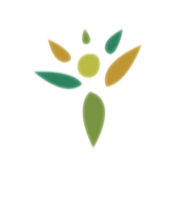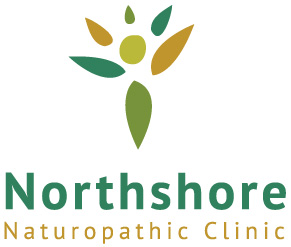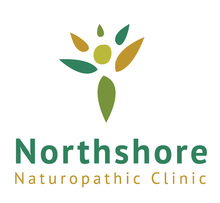By Dr. Matsen/Irene Hayton
One thing that is often overlooked when making lifestyle choices that improve our overall health and well-being is that many of the cleaning products and air fresheners that we use in our homes pollute not only our external environment, but our internal environment as well.
Besides being harmful, even fatal, if accidentally ingested, commercial household cleaning products and air fresheners contain chemicals that can be absorbed through our skin and that create noxious fumes which we inhale. While some people experience allergic reactions to these chemicals, many of us do not exhibit any direct, detectable symptoms. But this doesn’t mean that our bodies are not affected by these products. These toxic chemicals have to be handled by our livers, which are already working overtime in most of us. An overloaded liver is the root cause of virtually all health problems, so it’s in your best interest to limit your exposure to unnecessary chemicals whenever possible.
We all want a clean, fresh-smelling home, so what are the alternatives? Well, you can purchase safe, non-toxic, biodegradable household cleaning products which are available in most health food stores, in some grocery stores and online via the internet (do a search for natural cleaning products). These may be more expensive than regular cleaning products, but the higher price is well worth it from a health point-of-view.
Make Your Own
Another option is to make your own natural cleaning products and air fresheners using: ingredients that many of us already have sitting in our kitchen cupboards; pure, high-quality essential oils which can be found in health food stores and aromatherapy stores; and spray bottles that can be purchased in your local hardware, grocery or dollar stores. Not only are these safer to use than commercial cleaning products, they are very inexpensive. Be sure to label your spray bottles so you know what’s in them and keep them out of reach of children.
White distilled vinegar can be used as a general all-purpose household cleaner. Vinegar “dissolves gummy buildup, eats away tarnish, and removes dirt from wood surfaces. The acid in vinegar neutralizes alkaline substances such as scale from hard water.” It is also a disinfectant and deodorizer; the vinegar smell dissipates once it dries. It’s safe to use on most surfaces except marble. Do not use undiluted vinegar on tiles since it is acidic and can dissolve tile grout. As with any cleaner, you should always test on an inconspicuous spot first to make sure it’s safe to use. For cleaning purposes, it’s best to use white distilled vinegar because apple cider vinegar can stain.
- Mix 1 part vinegar with 1 part water in a clean, store-bought spray bottle and use to clean bathrooms and kitchens.
- Undiluted vinegar can be used to clean the toilet bowl; just pour it around the inside rim and scrub with a toilet brush.
- Add ½ cup of vinegar to the rinse cycle when doing laundry for a natural fabric softener.
- Combine ¼ cup of vinegar with a few drops of olive oil in a bowl and use it to dust wood furniture with a soft rag.
Baking Soda, another inexpensive deodorizing product, can be used in place of store-bought abrasive cleansers.
- Sprinkle baking soda onto a surface—such as countertops, bathtubs, sinks or ovens—scour with a damp sponge, then rinse thoroughly.
- Clean toilet bowls by sprinkling with baking soda and scrubbing with a toilet brush. Or pour 1 cup of vinegar into the toilet bowl, add ¼ cup of baking soda and leave to sit for 10 to 15 minutes before scrubbing with a toilet brush.
- Pour 1 cup baking soda down your drains, followed by 3 cups boiling water, to keep them clean-smelling and to prevent clogs. If your sinks are draining slowly, pour 1 cup of vinegar down the drain after the baking soda and water. The bubbling action will often clear a slightly clogged drain. For blocked drains, use a plunger or snake instead of toxic drain cleaners.
- Put boxes of baking soda in your fridge and freezer to absorb odors.
Lemon juice can also be used for household cleaning and leaves a great natural scent.
- It dissolves soap scum and mineral buildup from hard water.
- Use it to get your brass and copper items clean and shiny.
- Combine ¼ cup of lemon juice with a few drops of olive oil in a bowl and use it to dust wood furniture with a soft rag.
- Put the leftover lemon peel through your garbage disposal to freshen the drain.
Air Fresheners can be made using natural ingredients that won’t have a harmful effect on your health when inhaled.
- Vinegar or a teaspoon of pure vanilla extract can be placed in small open dishes and left to sit for a few hours to remove odors.
- Simmer cinnamon and cloves in a pot of water on the stove.
- Essential oils such as lavender, sweet orange, tea tree, rose, clove, lemongrass and eucalyptus, are antiseptic—they kill bacteria and mold. Mix 5 to 10 drops with 2 cups of water in a clean spray bottles and use as a room spray. Or put a few drops in water in an open container and place on top of heating vents or radiators.
Vinegar, baking soda, lemon juice, and essential oils are just a few of the natural ingredients that can be used for household cleaning and deodorizing. Other ingredients include club soda, washing soda, borax, and unscented soap. You can search online for websites that provide recipes for additional natural cleaning products or pick up a copy of Better Basics for the Home: Simple Solutions for Less Toxic Living by Annie Berthold-Bond.
In addition to following guidelines for a healthy lifestyle, using natural household cleaning products and air fresheners is another way to lessen the toxic burden on your body.


